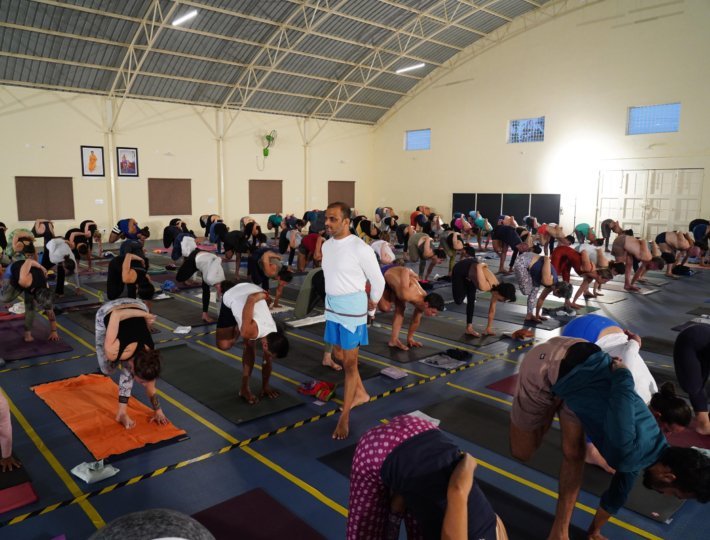The number of studies on losing weight and eating healthy that you read or hear about each year can be overwhelming. That’s why we scoured the research from 2017 to find strategies that you can actually incorporate into your daily life with minimal effort. Fact is, unless you can make something a lifelong habit, it’s not going to work for you long-term. Take a look at these top five nutrition and weight loss tips and choose what works best for you—and stick to it to see real results!
1. Drink black tea.
Green tea is not the only beverage that may aid in weight loss. According to a study published in the European Journal of Nutrition last September, black tea may help boost metabolism and promote weight loss by changing gut bacteria. It turns out that both green and black tea appear to be prebiotics, substances that good bacteria in your gut feed on and contribute to good health. So drink whichever you like, but keep in mind that drinking tea alone will not melt away excess pounds; you must also subscribe to healthy eating, in general, and regular exercise.
2. Eat eggs after exercise.
University of Illinois researchers recently discovered that the protein found in whole eggs is better than just egg whites at building muscle. In the study published in the American Journal of Clinical Nutrition in October, men ate 18 grams of protein from either whole eggs or egg whites after completing a resistance workout. Those who ate the equivalent of about three whole large eggs had about 40 percent greater muscle-protein synthesis than those who ate only egg whites. After your next workout, try this healthy recipe from Sonima’s new resident chef Amie Valpone.
Scrambled Egg Lettuce Cups
Ingredients
2 teaspoons extra-virgin olive oil
4 large eggs
Sea salt and freshly ground pepper, to taste
1 head Bibb lettuce
1 carrot, peeled and shaved
1 scallion, thinly sliced
1 tablespoon finely chopped fresh parsley
1 tablespoon chopped red onion
1 tablespoon slivered almonds
1 teaspoon sesame seeds, optional
Directions
1. Pour olive oil into a large skillet over medium heat. Crack eggs into a small bowl and beat with a fork. Transfer into the warm skillet. Use a spatula to pull and fold eggs across the pan from side to side until thickened and no visible egg liquid remains. Remove from the heat.
2. Place lettuce leaves on a flat surface. Place scrambled eggs inside the lettuce “cup”. Top with remaining ingredients, fold, and serve immediately.
Yield
2 servings
3. Try intermittent dieting.
You may not need to cut back on calories day-in and day-out to lose weight. In a study published in the journal Nature in August, 51 obese men followed two diets: Half cut their caloric intake by a third for 16 weeks, while the other half cut their calories by the same amount for two weeks, then took a two-week break from the diet. The latter group followed this pattern for a total of 32 weeks, which means they also dieted for 16 weeks total. At the end, the on-again, off-again dieters lost more weight and kept off an average 18 pounds more than the steady dieters six months afterward. The researchers believe intermittent dieting changes your metabolism. If you are interested in intermittent dieting or fasting, talk to your doctor first to be sure it’s right for you. Warning: Fasting is not recommended for those who are hypoglycemic or diabetic.
Related: Is Personalized Nutrition the Future of Dieting?
4. Consider going vegetarian.
If you need another reason to shift to a plant-based diet, consider the results of a study published in the Journal of the American College of Nutrition last June: Seventy-four adults with type 2 diabetes followed either a typical anti-diabetic diet or a vegetarian one. Not only did those on the vegetarian diet lose almost twice as much weight, they also lost subfascial fat and more intramuscular fat. Subfascial fat has been associated with insulin resistance, while intramuscular fat may help improve muscular strength and mobility. Well-balanced vegetarian diets tend to be lower in calories and fat, and higher in filling fiber, all of which may help with weight loss. However, this diet is no guarantee. Vegetarians may struggle to avoid junk food and poor lifestyle habits just as much as omnivores do.
5. Join an online weight-loss community.
Most things tend to be easier when you’re not alone, including weight loss. A study published in the Journal of Interactive Marketing last November found that participating in virtual support communities and posting about both successes and setbacks makes people more likely to reach their weight-loss goals. Sharing your photos and what works for you helps keep you accountable and motivated, and can be particularly helpful if you don’t have friends or loved ones who are also trying to lose weight. Just be sure to join a community where you feel welcomed and encouraged. Any bad feelings are a red flag that the group isn’t right for you.
Photography by Amie Valpone









Comments (0)